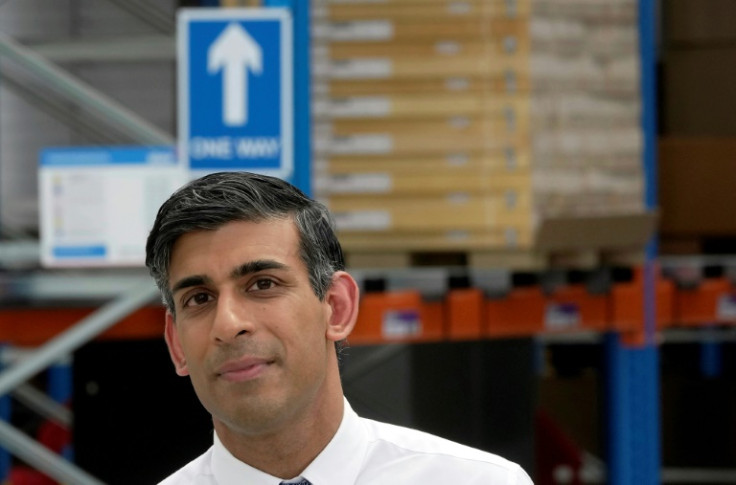PM Sunak appoints leading chief executives to new business council
Prime Minister Rishi Sunak has appointed a new business council that brings the chief executives of major companies into the heart of government to help boost the British economy.

The Conservative Party have always pitched themselves to the public as a pro-business party. On their website, they describe themselves as a "pro-enterprise" and "pro-innovation".
Therefore, part of their mission in government under Rishi Sunak's leadership is to turn Britain into the most desirable country "to start, scale and grow a business".
In the spirit of this mission, yesterday (the 18th of July), the PM's newly appointed Business Council met at Downing Street. The Council brings together 14 business leaders that represent a range of strategically important sectors throughout the British economy. The purpose of the Council is to help the government deliver the PM's ambition of growing the British economy and making Britain "the best place to do business".
The Council will inform the government with "real-world" perspectives on the challenges that businesses face in the current economic climate. One of persistent inflation, interest rate hikes from the Bank of England, and an ongoing cost of living crisis putting pressure on the pockets of families and businesses.
The idea is that the insights of business leaders can help shape cooperation between the government and private sector, creating highly skilled jobs as well as boosting investment, innovation, and productivity.
Specifically, the Council will consider how levels of investment, innovation, skills and talent can be increased within the British economy. Bringing trusted expertise into the heart of government, the Council includes chief executives from the following companies:
- AstraZeneca
- NatWest Group
- BAE Systems
- SSE
- Google Deepmind
- Sainsbury's
- Vodafone
- GSK
- Aviva
- Shell
- Sage
- Taylor Wimpey
- Diageo
- Barclays
In total these companies employ approximately 330,000 workers in the British economy. Moreover, they constitute some of the British economy's largest employers in key sectors including construction, life sciences, tech, financial services and energy.
The PM has explained how he is looking forward "to hearing first-hand from business leaders" the ways through which "barriers" can be broken down and "new opportunities" unlocked. Moreover, Sunak stated that his new Business Council "is one of the many ways" the government is "making the UK the best place to do business and invest", ensuring that the British economy is future-proofed and continues to grow.
Downing Street was also keen to highlight other measures the government has undertaken to support British businesses. For example, the policy of "full-expensing" means that businesses can "claim 100 per cent capital allowances on qualifying plant and machinery investments".
Plant and machinery investments entail the items kept for use by a business. For example, equipment, machinery and business vehicles. Moreover, Downing Street claim that full-expensing amounts to "an effective corporation tax cut" worth £9 billion for British businesses.
Downing Street also claim that the reduction of red tape, low corporation tax and government investment into R&D will also benefit British businesses. Last year, the government announced an R&D budget worth £39.8 billion from 2022-2025. This sizeable budget is intended to help the British economy achieve the target of raising R&D investment to 2.4 per cent of GDP by 2027.
Moreover, investment in R&D is key if Britain is to cement its status as a science and technology superpower. Earlier this year, the PM and the Technology Secretary set out a plan to achieve this objective by the year 2030. The third section of the plan states the government's ambition of increasing private sector investment in R&D by 2030.
The objective of ensuring Britain is a global player in science and technology is also a concern of key business leaders who sit on the PM's new council.
For example, the CEO of AstraZeneca, Pascal Soriot, said he looks forward to "productive discussions" supporting "efforts to truly become a global science superpower". Soriot also highlighted the "vital role" the private sector has to play "working with government and society to build a sustainable economy".
Co-Founder and CEO of Google DeepMind, Demis Hassabis, highlighted Britain's "world-class strengths in science and technology, including AI". Crucially, science and tech have an essential role to play in "boosting innovation and tackling the biggest challenges we face as a country", he explained.
CEO of GSK, Emma Walmsley, also said that she is looking forward to the council's discussions on how the government and business can cooperate to harness the potential of "science and new technologies, from AI to vaccines innovation".
© Copyright IBTimes 2025. All rights reserved.





















